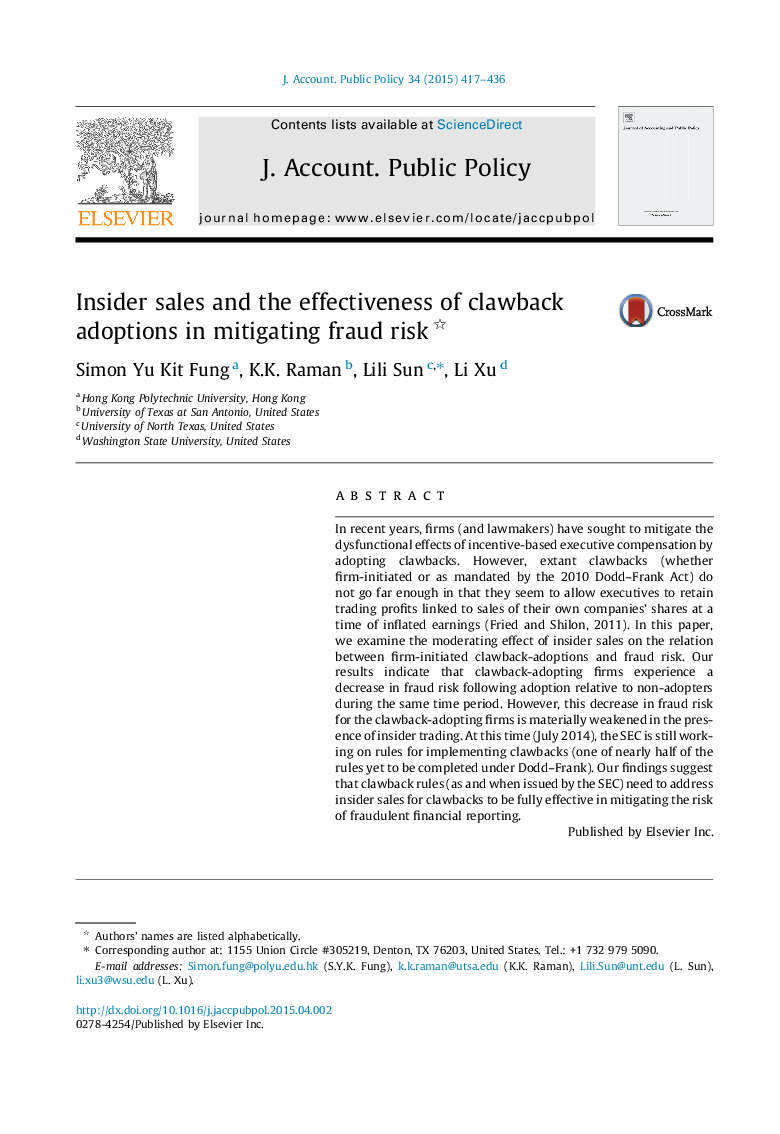| Article ID | Journal | Published Year | Pages | File Type |
|---|---|---|---|---|
| 1005812 | Journal of Accounting and Public Policy | 2015 | 20 Pages |
In recent years, firms (and lawmakers) have sought to mitigate the dysfunctional effects of incentive-based executive compensation by adopting clawbacks. However, extant clawbacks (whether firm-initiated or as mandated by the 2010 Dodd–Frank Act) do not go far enough in that they seem to allow executives to retain trading profits linked to sales of their own companies’ shares at a time of inflated earnings (Fried and Shilon, 2011). In this paper, we examine the moderating effect of insider sales on the relation between firm-initiated clawback-adoptions and fraud risk. Our results indicate that clawback-adopting firms experience a decrease in fraud risk following adoption relative to non-adopters during the same time period. However, this decrease in fraud risk for the clawback-adopting firms is materially weakened in the presence of insider trading. At this time (July 2014), the SEC is still working on rules for implementing clawbacks (one of nearly half of the rules yet to be completed under Dodd–Frank). Our findings suggest that clawback rules (as and when issued by the SEC) need to address insider sales for clawbacks to be fully effective in mitigating the risk of fraudulent financial reporting.
